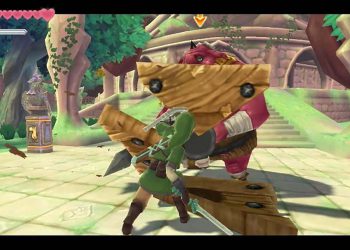
Famicom Detective Club is definitely an exciting but perhaps confusing proposition from Nintendo for fans of the visual novel genre. On one side, the remakes represent a major developer and publisher paying attention to a genre that's generally restricted to indie devs along with other more niche studios. However, they are remakes of games from the 80s with a brand new user interface and visuals but largely exactly the same mechanics; the games are from a simpler era, so to speak. As i thoroughly enjoyed my time with both The Missing Heir and The Girl Who Stands Behind, it's undeniable that compared to modern visual novels like the Ace Attorney series, the obvious counterpart to Nintendo’s detective-themed revivals, they of an older time. So, should you play Famicom Detective Club?
Upon starting The Missing Heir, the player wakes up after falling off a cliff, remembering nothing of who they really are or why they're there. Right after, they return to the cliffside from the house of the person who found them. Came from here forward, almost every environment, all the rooms, and each other piece of mise-en-scene the player encounters are, visually speaking, unbelievable. It truly cannot be understated just how taken aback I was by the beautiful visuals in this game. This excellent feeling of environment often helped me wish I could visit these rural Japanese locales. Despite being granted just one or two different screens for an area, I found feel as if I knew the places where each game happens. The importance of this sense of space and sweetness cannot be understated, particularly in a game such as this where the sublime visuals are actually one-half from the proverbial puzzle. Nintendo really manages to nail the visual part of the visual novel much better than most that have used it before.

Unfortunately for the game, other elements show their age rapidly. Perhaps the most glaring fault of the game is that its systems, something that would have been totally forgivable during the time of the initial games’ release, have aged quite a bit. The obvious comparison one can make to Famicom Detective Club is the Ace Attorney series and its various spin-offs. While Ace Attorney focuses on the legal process, its investigation elements are in line using the core gameplay of Famicom Detective Club, as are its questioning and interrogation sequences. This is where the age of Famicom Detective Club shows. Often when searching an area the very first time, the player wants one, maybe two items to progress the storyline, making it sometimes feel like looking for a needle inside a haystack. Other visual novels often have a stronger internal narrative for their characters to direct players and provide context to scenes like this, enhancing the player to find the item and feel immersed within the protagonist’s perspective. Famicom Detective Club lacks this strong sense of internal monologue, which is sorely missed. This is not to state it is entirely absent, just a smaller amount defined, and doing a smaller amount operate in giving the protagonist a personality and enhancing the player through the game’s investigations. This highlights another serious problem: sometimes dialogue and the advancement of conversations are obtuse. Usually the player will have to choose the same option in the talk menu multiple times to progress a discussion. The first time you encounter this, the sport doesn't let you know. There isn't any guiding internal monologue to hint in internet marketing. The sport does nothing to allow the player know that the same option will now do something different. It doesn't allow you to travel freely, so often, after i was stuck, I would find myself selecting every dialogue option again to advance the game. During these moments, the straightforward nature of these games shines through. A minimum of a handful of times per chapter, you will know what you need to find or make happen although not how to get it done, also it can be frustrating. That being said, most interactions are fairly straightforward, which won’t be enough of the reason behind most to bypass the duology. These problems are also more apparent in The Missing Heir, the older of the two games despite the other being its prequel.
While the navigation of the game’s dialogue and inspecting the world often feel simplistic to a fault, the writing and narrative itself don't suffer from the same issues. As the Missing Heir is really a standard whodunit-style story, it's constructed compellingly. The dialogue feels natural, and the characters convey a genuine feeling of becoming more or less uneasy with the protagonist in the future. While these interactions are straightforward and result in a set outcome, it can't be understated that whenever you are not battling the game’s systems, they feel really natural, and also the story is fun to progress through. As was the situation using the mechanical side of things, The Girl Who Stands Behind may be the more compelling of these two, featuring a murder mystery occur a higher school alongside more believable and engaging supernatural elements.
The Famicom Detective Club duology is, at its core, an attractive group of remakes which will please players that may go beyond some of the dated mechanics. Time with both of the games was compelling, and eventually their issues slowly faded to the back of my mind, only re-emerging after i actually encountered them. Nintendo’s remakes from the Famicom Detective Club games are not to be missed for fans of mystery games and visual novels.
Famicom Detective Club: The Missing Heir and Famicom Detective Club: The lady Who Stands Behind are Available around the Nintendo Switch














